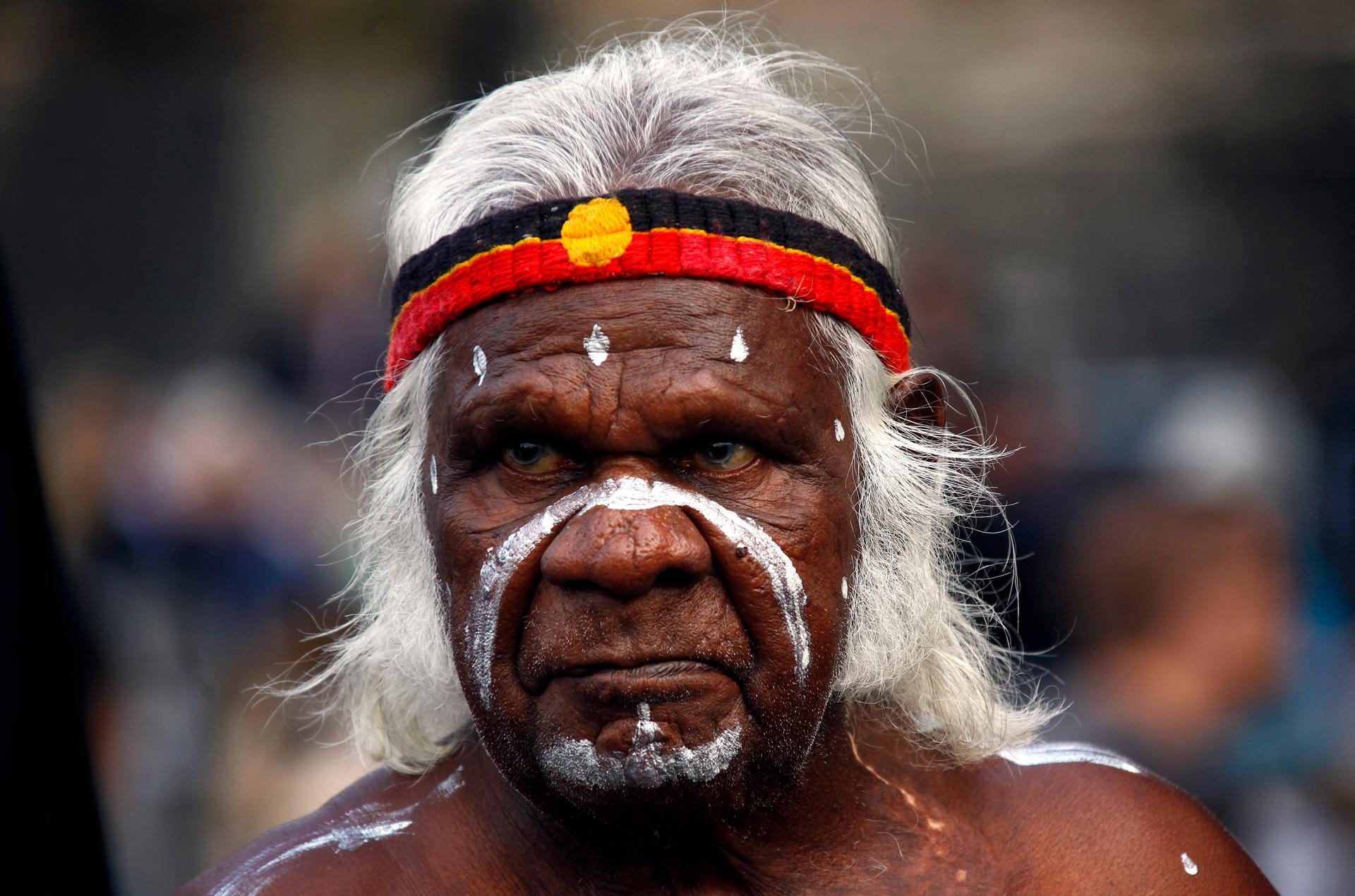When languages die, ecosystems often die with them
An Aboriginal performer in Sydney, Australia. Aboriginal languages in Australia are among the fastest-disappearing tongues in the world.
You probably know that much of the world's environment is under threat. But a new study says languages are disappearing alongside plants and animals.
The study, from the World Wildlife Fund, measured the threat to languages using a scale that tracks how threatened species are. Not only are many languages steadily losing speakers, says co-author Jonathan Loh, but "the rate of decline, globally, is actually very close to the rate of decline in populations of wild vertebrate species."
There's the obvious threat of in-demand languages, which many people start speaking more and more as the speakers of smaller languages dwindle. "Thousands of indigenous languages spoken around the world are being replaced by one of a dozen or so dominant world languages like English, Spanish, Mandarin Chinese," Loh says.
But Loh, who's also a research associate at the Zoological Society of London, says that languages are dying off due to many of the same issues that plants and animals face.
"Some of the drivers that are driving the extinction of biodiversity — such as increasing global population, increasing consumption of natural resources, increasing globalization and so on — are applicable to languages as well," he says.
And that's no coincidence. Loh explains that languages have a lot of specific local knowledge built in. "The cultures have evolved in a particular environmental context, so they have an extraordinary amount of traditional ecological knowledge — knowledge of the local species, plants, animals, the medicinal uses of them, the migration patterns of animals behavior," he says.
So when the languages die off, much of that knowledge goes with them. "Then children stop learning the language, they also stop acquiring that traditional knowledge," Loh says.
There are plenty of linguists who are studying and trying to preserve native languages, but Loh wants to see them work with biologists to make sure that valuable ecological history isn't missed. "Linguists often don’t have the knowledge of natural history that’s necessary in order to be able to record an endangered language because so much of the lexicon is tied up with names of species or types of ecosystems," he says.
He argues that "if we can recognize that culture and nature are inextricably interlinked, then working on a biocultural diversity as a whole, as a subject, would be a more fruitful way of looking at conservation."
Loh says languages are disappearing mostly quickly in Australia and the Americas. "About three-quarters of the languages of the Americas are under the threat of extinction," he says, and "95 percent of the indigenous aboriginal Australian languages are … declining extremely rapidly."
"And, as with species," he warns, "when a language is lost, it's gone forever. You can never get it back."
You probably know that much of the world's environment is under threat. But a new study says languages are disappearing alongside plants and animals.
The study, from the World Wildlife Fund, measured the threat to languages using a scale that tracks how threatened species are. Not only are many languages steadily losing speakers, says co-author Jonathan Loh, but "the rate of decline, globally, is actually very close to the rate of decline in populations of wild vertebrate species."
There's the obvious threat of in-demand languages, which many people start speaking more and more as the speakers of smaller languages dwindle. "Thousands of indigenous languages spoken around the world are being replaced by one of a dozen or so dominant world languages like English, Spanish, Mandarin Chinese," Loh says.
But Loh, who's also a research associate at the Zoological Society of London, says that languages are dying off due to many of the same issues that plants and animals face.
"Some of the drivers that are driving the extinction of biodiversity — such as increasing global population, increasing consumption of natural resources, increasing globalization and so on — are applicable to languages as well," he says.
And that's no coincidence. Loh explains that languages have a lot of specific local knowledge built in. "The cultures have evolved in a particular environmental context, so they have an extraordinary amount of traditional ecological knowledge — knowledge of the local species, plants, animals, the medicinal uses of them, the migration patterns of animals behavior," he says.
So when the languages die off, much of that knowledge goes with them. "Then children stop learning the language, they also stop acquiring that traditional knowledge," Loh says.
There are plenty of linguists who are studying and trying to preserve native languages, but Loh wants to see them work with biologists to make sure that valuable ecological history isn't missed. "Linguists often don’t have the knowledge of natural history that’s necessary in order to be able to record an endangered language because so much of the lexicon is tied up with names of species or types of ecosystems," he says.
He argues that "if we can recognize that culture and nature are inextricably interlinked, then working on a biocultural diversity as a whole, as a subject, would be a more fruitful way of looking at conservation."
Loh says languages are disappearing mostly quickly in Australia and the Americas. "About three-quarters of the languages of the Americas are under the threat of extinction," he says, and "95 percent of the indigenous aboriginal Australian languages are … declining extremely rapidly."
"And, as with species," he warns, "when a language is lost, it's gone forever. You can never get it back."
